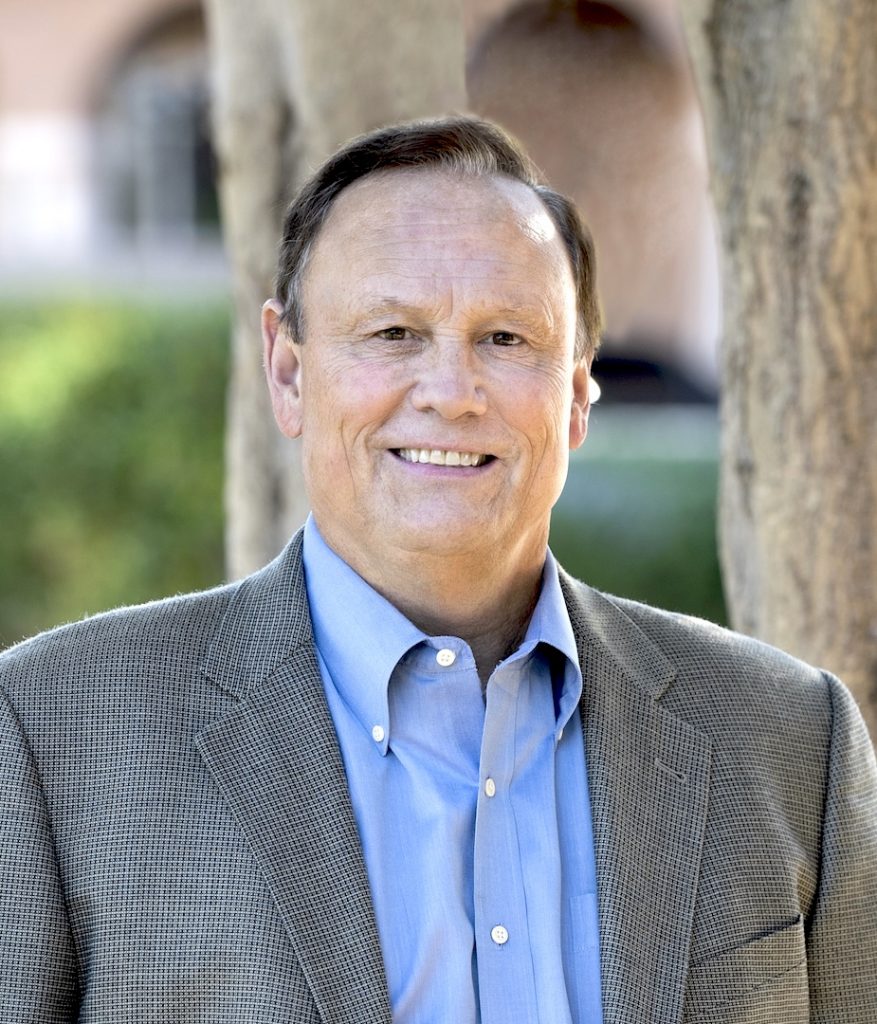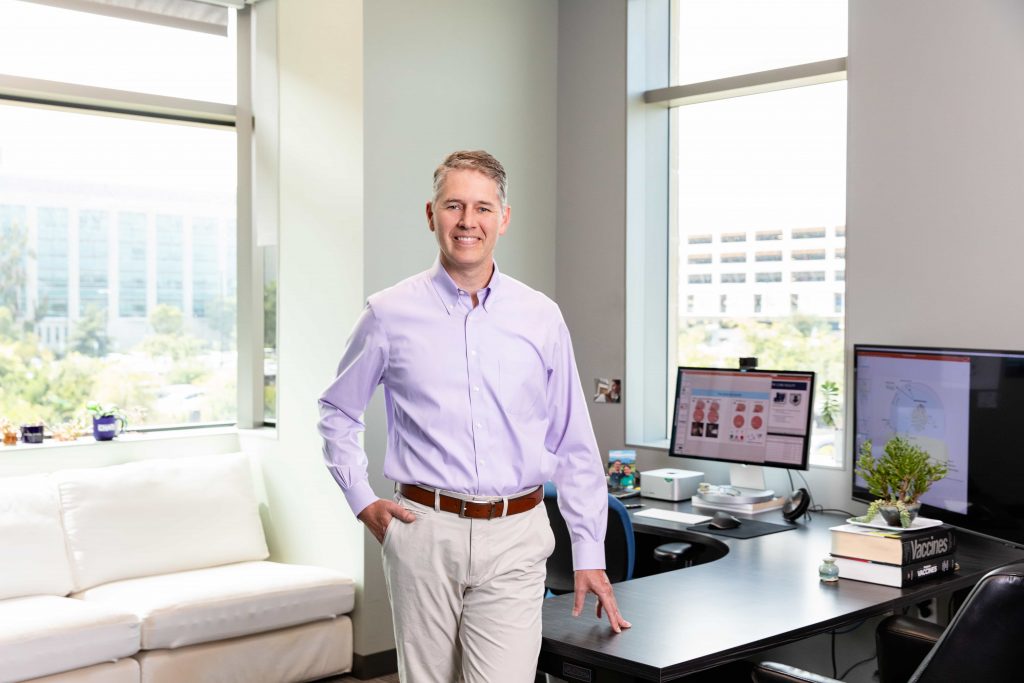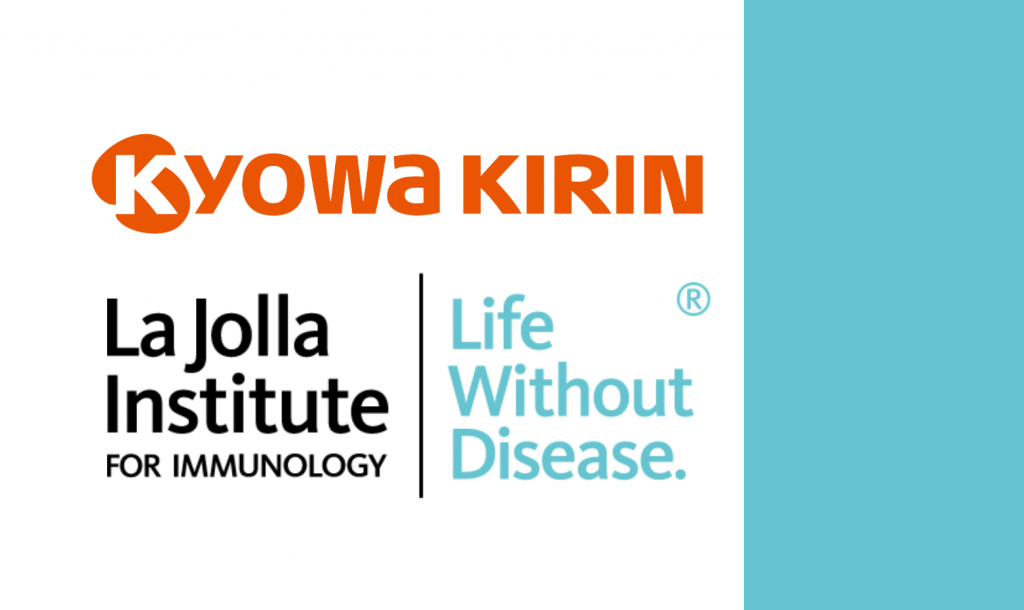
LA JOLLA, CA – The La Jolla Institute for Immunology is pleased to announce that David M. Rickey, former chairman and CEO of Applied Micro Circuits Corporation (AMCC), has been elected to its Board of Directors.
“We’re delighted to welcome David Rickey to our board,” said Mitchell Kronenberg, Ph.D., La Jolla Institute president and chief scientific officer. “Dave has enjoyed a legendary career in the telecommunications and semiconductor industries, including building AMCC from a struggling firm into one of the powerhouses of San Diego. His vast experience in business and high tech—which ranges from creating startups to running major corporations—will be invaluable to the Institute as we increasingly move our research discoveries into the clinical and private sector environment.”
Rickey, who is based in San Diego, was born in Geneva, a small town in western New York where his father worked as a chemist and his mother was a nurse and homemaker. He graduated summa cum laude with a BS in mathematics from Marietta College in Ohio. He also received a BS in metallurgy and materials science from Columbia University and a masters in materials science from Stanford University. Rickey’s first job out of school in 1981 was with IBM where he worked as a semiconductor engineer for four years.
In 1985, Rickey moved to San Diego where he was hired by the semiconductor division of Northern Telecom, the Canadian telecommunications giant. By the time he left Nortel eight years later, he was director of operations and engineering and was running the company’s semiconductor manufacturing operations in San Diego and Ottawa. He then left Nortel to join one of the company’s customers, a small struggling company called Applied Micro Circuits Corporation, where he was vice president of operations for 20 months before he took the same job with NextGen in San Jose. He was there for only eight months when the chairman of AMCC asked him to return to the company as CEO. When Rickey rejoined AMCC the company was worth approximately $30 million, but over the next nine years, he and his team turned AMCC around and led the company to a top valuation of over $30 billion.
Since 2000, Rickey has served on a number of boards, including Netlist, AMI Semiconductor, Agility Communications, Silicon Wave, and Cytori Therapeutics, where he is currently board chair. He recently served as interim CEO and consultant to Calient Technologies.
Rickey has also been an active philanthropist, primarily through the Brenda and Dave Rickey Foundation he created with his wife. The foundation donated the funds to build a planetarium at Rickey’s alma mater, Marietta College; provided the lead gift for construction of the Boys and Girls Club in his native Geneva, N.Y., and is helping finance the renovation of that city’s YMCA.
Rickey’s initial involvement with La Jolla Institute came last year when LJI board member Tom Tullie, Rickey’s COO at AMCC, invited the couple join forces to create The Tullie and Rickey Families SPARK Awards for Innovation in Immunology at the Institute. The SPARK Awards provide flexible start-up funding that enables LJI’s early career investigators to act on their promising projects for bold new approaches to diagnoses, treatments and possibly cures for diseases that afflict millions today.
“Brenda and I were thrilled to become involved with the Institute through the SPARK Awards,” Rickey said. “We’re inspired by the talent and drive of these young investigators and we’re privileged to be able to provide them with a steppingstone to launch their research careers. We believe they are the future leaders of science and based on the quality and breadth of their projects, we have no doubt their research is not only going to be successful, it will ultimately have a major impact on improving public health for millions around the world.”




